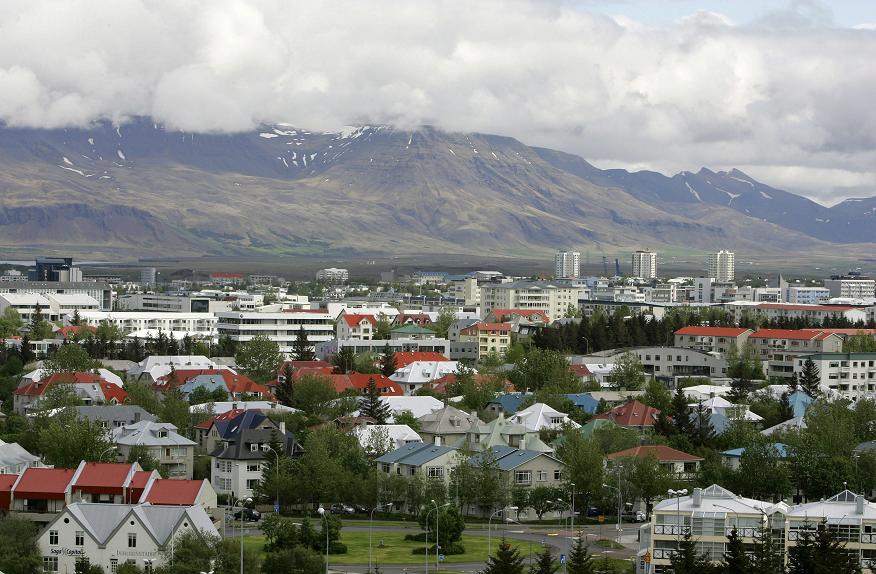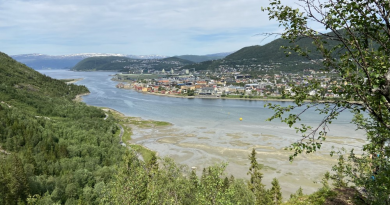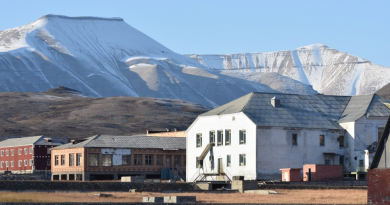Blog: Local vs Global – Dualism in Arctic Policy Development

For those readers who just arrived to this blog from a 1981 deLorean, the Arctic has in recent years become an economically and politically significant region and is garnering a lot of attention.
Two events this past week both highlighted and catered to this emerging interest: the Arctic Circle, held in Reykjavik, Iceland; and the Conference Board of Canada’s North Summit 2013, held in Whitehorse, Yukon.
In addition to spontaneous left eyelid twitching as a result of chronic jetlag, I gained a lot from these two conferences. But the biggest lesson was that the participants – policymakers, stakeholders, experts, what have you – seemed to either have the capacity to think locally or globally, but rarely both. And that pretty much sums up the state of Arctic policy making today.
Arctic Circle conference
What did that look like in practice: the Arctic Circle proudly hosted over 1000 participants from 40 countries. While the content was very much Arctic-based and there were many northern participants, especially from Alaska, Iceland and Greenland, it had a distinctly cosmopolitan feel. Plenaries were held discussing Singapore, South Korea and Himalyan interest in the Arctic, not to mention German and French; Google’s Eric Schmidt talked about how technology could connect the region to global ideas and innovation; and Guggenheim’s Scott Minerd suggested the Arctic represents not just the best opportunity of our generation, but “of the last 12,000 years”!
Of course, this accessibility was precisely Icelandic President Grimsson’s point, and stems from a view of the Arctic as a common heritage of mankind, for which we all have a responsibility (and a right). Assuming that the best decisions and policies follow from transparency and openness, the Arctic Circle aimed to give those who are not Arctic Council states or Permanent Participants a voice in regional governance and economic development. While the resultant discussion was not superficial, it was pretty far removed from the daily lives of Northerners.
North Summit 2013
On the opposite side of the region, and the spectrum, was the North Summit 2013, the Conference Board of Canada’s second such event, which sought not to bring global actors to the Arctic, but to bring local actors together. There was a good mix of territorial, local, First Nations and Inuit involvement, along with some presence from industry, federal government and academia. While much of the discussion was productive, there was still the sense that the uniqueness and complexity of local contexts could not easily adopt or translate into broader lessons. Those who are not from the North but have worked there for years – and these were heavily represented – were often the most jealous of gatekeepers, knowing that others could not possibly understand the things that they have learned, and earned, the hard way. I must acknowledge that the organizers’ intent was to help create networks and break down silos, but the North continues to host a pervasive sense of mistrust of outsiders, and not for nothing.
Canada and the Arctic Council
Canada has tasked its Arctic Council chairmanship with bringing local perspectives into circumpolar governance, with its theme of “development for the peoples of the Arctic”. I will say that it is absolutely the right task – the Arctic is in dire need of bridging local and global perspectives in a constructive way. But I saw no evidence that Canada was providing any leadership in accomplishing that this past week. The Canadian voice was largely missing in Reykjavik, bar a few academic presentations, and while SAO Chair Patrick Borbey was present at the event he did not take the opportunity to articulate the Canadian vision to the conference participants. While he did speak in Whitehorse, it was in fairly itemized terms regarding Arctic Council activities; important stuff, but not inspiring, and not communicating to northern Canadians the value that the Arctic Council might bring to their communities.
I heard a lot this past week about local solutions to local problems, and global solutions to global problems, but fairly little in between. The tension between the two is going to get more problematic until this gap is addressed.




Correction to this blog: Patrick Borbey did present at the opening plenary of the Arctic Circle.